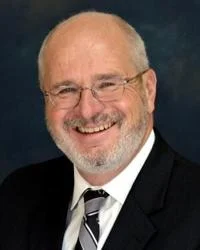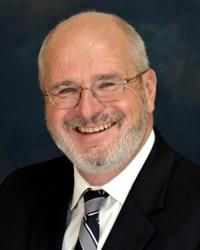General Tax Information Bulletins & 1 Departmental Notice
|
|
|
You are subscribed to receive updates to Information Bulletins and Departmental Notices from the Indiana Department of Revenue. The following Information Bulletins and Departmental Notice have been updated:
To see other Information Bulletins and Departmental Notices check out our Tax Library. |
Nullification Resolution
Nullification Resolution
by Andrew Horning Libertarian Candidate For The 8Th District Congressional seat
Freedom, IN – As a US House Rep. I would immediately introduce the following to be a Joint Resolution:
“Whereas the plain wording of the 10th Amendment of Constitution for the United States of America is binding law;
Be it resolved by the Senate and House of Representatives of the United States of America in Congress assembled, that;
All laws, agencies, programs and treaties not clearly and specifically authorized by the Constitution for the United States of America, are unconstitutional;
Any agency, treaty, law or program operating outside authority specifically granted by the Constitution for the United States of America is null and void;
Unconstitutional laws, agencies, programs and treaties have created both problems and dependencies that will take time to rectify;
A temporary agency shall be empowered to identify and, either phase out unconstitutional federal powers, delegations, laws, programs, treaties and entities, or legitimize by constitutional amendment those agencies, treaties, laws or programs deemed necessary to the assurance of peaceful liberties, property and prosperity of American citizens.“
I challenge all my fellow candidates for both the US Senate and the House of Representatives from Indiana to support this resolution or state their reasons for either their opposition or modification.
It’s Human Nature For Humans To Do Dumb Things
It’s Human Nature For Humans To Do Dumb Things
By Dannie McIntire
JUNE 13, 2022
Recently having obtained the grand old age of 72, I thought it a good time to reflect back on my life so far. While many people might reflect back on their accomplishments or lack of accomplishments, I found myself dwelling on some of the “dumb†things I’ve done so far over my lifetime and lived to tell about. Â
Most people, and also our government, think of adulthood as having obtained the age of 18, by that age you’re expected to be capable of sound rational thinking, although many experts today believe the human brain may not be fully developed until age 25.Â
Now, in my defense, if according to the experts the human brain isn’t fully developed until age 25, then it easily explains some of things I did during my youth weren’t actually my fault, my brain just wasn’t fully developed.Â
As a parent, keep the above in mind the next time one of your kids does something and you’re about to ask them, “how could you so something so dumbâ€! Even better still, stop and think of some of the “dumb†things you have done over the years.
I have my own theory on brain development. I believe that no matter how old we grow to be, our brains never mature to the point that “dumb†acts are totally preventable. I also believe that once a “dumb†act has been committed, regardless of whether or not your brain has fully matured, said brain will automatically direct you to either cover up the act or blame it on someone else.
Of course, no one likes to admit when they’ve done something “dumbâ€, but today I’m going into the confessional booth to prove my theory that the human brain never matures to the point it prevents you from doing “dumb†things.
Married, we moved from the city to a rural county, building our first house, on which I acted as the general contractor. While handy with tools, I gained much of my house-building “knowledge†from reading building books beforehand. The house framed in, I needed to determine how many bundles of shingles I needed to order.Â
I thought to myself a simple process would be to measure the roof to obtain the square footage, and divide it by the square footage a bundle of shingles would cover, it sounded easy enough to do. Up on the roof with measuring tape in hand, I measured the length of the roof, then attached a measuring tape to the crown of the roof and started walking backward to obtain that measurement.Â
Now, if you’ve watched cartoons when a character walks off a cliff, the character always attempts to fly by flapping their arms. I can absolutely attest to that as being factual, all the way down to the ground! I landed on my back, luckily on loose dirt that had been dug out for the basement, so I only had to lay there for about 30 minutes dazed, wondering what in the heck had happened.
That lesson should have been learned, heights are dangerous when the brain is not fully engaged.
Fast forward, to the 2nd house I built, after a number of years the cedar siding needed re-staining. I purchased a pressure washer to prepare the siding, and waited for a nice sunny day, starting at the front of the house I worked my way around it, saving the higher driveway side for last.
Reaching the middle of the house on the driveway side, in order to reach the highest point of the apex, required me to fully extend the ladder, which I positioned between the house air conditioner and two steel posts I had installed to protect it.
By then, having completed three-quarters of the house, I was an expert at power washing, no reason to require the full engagement of my brain.Â
Up the ladder to the top rungs, my brain in passive mode, I failed to first brace myself on the ladder before I pulled the trigger on the wand, the released force of pressurized water caused me to lose my balance, and suddenly I was no longer on the ladder.Â
It’s surprising what can flash through your mind so quickly when you realize you’ve just done something “dumbâ€. Sub-consciously, from my past experience, I’m sure I knew “flapping†would not do me any good, but with the split second thought of being impaled on the post below, heck you’ll try anything.Â
On the way down I managed somehow to push myself away from the ladder, clearing my descent away from the post below. With a rough gravel driveway below me, I can only assume I instinctively thought landing on my feet was my best chance of survival. Making a bone-jarring landing, I’m sure I performed the world’s first imitation of a bobblehead. Thinking back now, I should have patented that idea! Once again, I had survived committing another “dumb actâ€!
By the time I was in my 40’s, my brain should have been fully developed, but on to what has to be one of my greatest achievements of “Dumbâ€.Â
A friend of mine had built a potato gun and I marveled at its ability to launch pieces of raw potato to unbelievable heights, I had to build my own. The first chance I had off I went to Home Depot to buy the necessary pieces of PVC pipe and a barbecue grill igniter. Of course I had to improve mine over my friends. Diligently put it together, I then spray painted it a shiny gloss black and left it in the garage to dry.Â
Like a child eagerly waiting for Christmas to come, I made several trips down to the garage to see if the paint on my masterpiece had dried. Finally, it was ready. Night had descended, too dark out to watch the trajectory of a launched potato, I decided to give it a “light†tryout inside the garage. A piece of potato stuffed down the barrel, a couple of squirts of WD-40 into the firing chamber used as a propellant, I casually aimed for the closed garage wood door, and pulled the igniter trigger. BAM! It Had Worked!Â
Smoke clearing, I stared in disbelief at the act of “dumbness†I had just committed. First I have to ask the reader, seriously, who would have thought a piece of raw potato would go through a wood garage door? My brain switched quickly into defense mode, how I was going to explain why there was a round hole with the edges pushed outward in the garage door!Â
Now, this is when a fully “mature†brain instantly directs you to take the proper course of action. First, gently push the blown-out sections back in, your mind tells you with all three of your kids driving, there could easily be multiple plausible suspects, so during the following evening dinner you ask in an incredulous voice, “ok…who backed into the garage door�
Being the upstanding guy I am, and since my question had received a chorus of denials from around the table, with all eyes now accusingly on me, I did a “mea culpaâ€, and admitted to having had a lapse of “mature brain†thinking.Â
All was forgiven about the incident, at least until one evening when dinner was being prepared and it was discovered we were out of potatoes.
My next confession of “dumbness†involves a hedge apple tree. For those who may be unfamiliar with this tree, it was once commonly grown as a natural barrier, having sturdy dense branches with thorns that could penetrate a suit of body armor! The female tree bears a large green softball size “fruit†(thus hedge apple) that even most wildlife find unpalatable.Â
This particular female hedge apple tree was growing at the edge of a steep embankment beside a creek that ran across the boundary of my lot. When I had first cleared the lot to build, I left this tree for erosion control of the embankment.Â
During the summer as the “fruit†developed, weighing down the thorny branches, cutting grass near the embankment on my riding mower required me to duck under the hanging branches each time I made a pass.Â
This particular summer, the crop of hedge apples was more abundant than in years past, they weighed down the branches much lower, requiring me to further lower my head and body over the steering wheel as I made each pass under the branches, cutting closer with each pass towards the edge of the embankment.
By now, you may have seen this one coming. Riding out from underneath the branches, raising my head up, I realized too late that I was going off the embankment. I could do nothing but hold on tightly to the steering wheel as I went over the edge headed into the depths of the abyss.Â
In my mind, I heard the roar of the rodeo crowd as I rode the beast named “Craftsman†for the full eight-second count as it made a full 360-degree turn down the steep embankment in its attempt to throw me off. While I never heard the sound of the rodeo horn blare, suddenly my ride was over, and I had stayed mounted atop the beast as it now set upright in the middle of the creek.Â
I admit to feeling a little disappointed that no one else had been home to witness my amazing ride as I pondered how to get my riding mower out of the creek and back up the embankment. Like any good cowboy, I lassoed it with a rope, tied it to the bumper of my car, and pulled the beast back up the embankment into the coral.   Â
The last example I’ll recount of having an undeveloped brain occurred after moving into a new house about three years ago. The house has a small yard, I decided to be “environmentally correct’, purchasing an electric mower along with a sufficient length extension cord.Â
One day while cutting the front, I became distracted, and ran over the cord, cutting it almost in half. I will admit to saying a “few choice words†as I unplugged it from the mower, and pulled the extension cord into the garage. Gathering the tools required to make repairs, I decided to cut out the damaged section, and then simply splice it back together. Wire cutter in hand, I made the first cut above the damaged section.Â
I’m not sure if it was the bright flash, or the intense tingling starting in my hand and radiating up my arm, or the possible whiff of smoke I thought I smelled coming from my beard, but I realized too late that I had failed to unplug the other end of the extension cord from the receptacle outlet. Â
After that act of “dumbnessâ€, my “mature brain†finally kicked in. I decided that I wouldn’t mind living a bit longer, and since using an environmentally correct lawn mower could potentially kill you, I’ve now turned cutting my grass over to a lawn service.Â
Perhaps one day I’ll have a fully developed brain, but being 72, I’m beginning to think if it hasn’t happened by now it’s not going to, however, I should get some points for keeping my family and friends either laughing or shaking their heads!.Â
FOOTNOTE: The City-County Observer posted this article without bias or editing.
Â
HOT JOBS
|
||||||||||||||||||||||||||||||||||||||||||||||||||||||||||||||||||||||||||||||||||||||||||||||||||||||||||||||||||||||||||||||||||||||||||||||||||||||||||||||||||||||||||||||||||||
|
|
Vanderburgh County Board Of Commissioners Meeting Agenda
 AGENDA Of The Vanderburgh County Board of Commissioners on June 14, 2022 – 3:00 p.m. In Room 301, Civic Center ComplexÂ
1. Call to OrderÂ
2. AttendanceÂ
3. Pledge of AllegianceÂ
-
- 4. Action Items A. American Rescue Plan Act FundingÂ
- B. Engineer 1. Permission to Open Bids: VC22-06-01 “Milling & Resurfacing of Vanderburgh County Roadsâ€Â
- 2. Final Acceptance Form: Green River Road Phase 6Â
- 3. Indiana Department of Transportation Construction Change Order and Time Extension Summary: #19 for Green River Road Phase 6Â
- 4. Indiana Department of Transportation Construction Change Order and Time Extension Summary: #20 for Green River Road Phase 6Â
- 5. Notice to Bidders: VC22-06-02 “Concrete Street Repairsâ€Â
- 6. Change Order: Kansas Road Phase 2Â
- 7. Approval to Pay Moving Expenses: Oak Hill Road Parcel 19Â
- 8. Sidewalk Waiver Request: Joiner Subdivision at 11715 N Green River Road & 5105 E Boonville-New Harmony RoadÂ
- 9. Administrative Settlement: Oak Hill Road Parcel 28Â
- 10. Notice of Termination Form: Baseline Road Phase 1 ReconstructionÂ
- C. Health Department 1. COVID-19 UpdateÂ
- 2. Lyft Pass for Pre to 3 ProgramÂ
- 3. Pre to 3 Public Health Nurse Contract: Ashton Conner GentryÂ
- 4. Skyline V and F Marketing Services Agreement for Pre to 3 ProgramÂ
- 5. IDOH Grant Agreement Contract #61695 My Health BabyÂ
- 6. IDOH Grant Agreement Contract #63047 Produce RX GrantÂ
- D. Prosecutor’s Office 1. Diehl Consulting Group Professional Services/Consulting AgreementÂ
- E. Sheriff’s Office 1. Motorola Body Worn Camera AgreementÂ
- F. Superior Court 1. Agreement for Professional Services: Jacklyn ChandlerÂ
- G. Second Reading of Ordinance CO.06-22-08 – An Ordinance Establishing a Non-Reverting Medicaid Reimbursement FundÂ
- H. All American Locksmith & Alarm Proposal: Old Courthouse Security System UpgradesÂ
- I. Request for Proposals of Qualifications for Energy Savings Contract 1. Notice of Request for Proposals of Qualifications for Energy Savings ContractÂ
- 5. Department Head ReportsÂ
Drainage Board Immediately FollowingÂ
-
- 6. New Business A. Board Vacancy 1. Burdette Park Advisory Board (1)Â
- 7. Old BusinessÂ
- 8. Consent Items A. Approval of May 24th Board of Commissioners Meeting MinutesÂ
- B. Employment ChangesÂ
-
- C. Auditor 1. Claims Voucher Reports i. 05/23-05/27/2022Â
- ii. 05/30-06/03/2022Â
- iii. 06/06-06/10/2022Â
- D. Clerk 1. May 2022 Monthly ReportÂ
- E. Treasurer 1. April 2022 Monthly ReportÂ
- 2. Inkeepers Tax ReportÂ
- F. Engineer 1. Report & ClaimsÂ
- G. Highway Department 1. Department Head Report 05/13-05/26/2022Â
- 2. Department Head Report 05/27-06/09/2022Â
- H. Sheriff’s Office 1. Surplus RequestÂ
- I. LawMan Security and Consulting: Old Courthouse Security AgreementÂ
- J. Appropriation Requests 1. Commissioners i. General Fund a. Part-Time Building & GroundskeeperÂ
- b. Union OvertimeÂ
- c. FICAÂ
- d. PERFÂ
- 2. Health Department i. Health Department a. SuppliesÂ
-
- 9. Rezoning A. Final Reading of Rezoning Ordinance VC-3-2022Â
Petitioner: Donald Relleke & T.M.F.T., Inc./L.A.D. TransportÂ
Address: A portion of 2708 Orchard Road & 11300 Schaeffer RoadÂ
Request: Change from Ag to M-2 with UDCÂ
10. Public CommentÂ
11. AdjournmentÂ













